Key Takeaways
- Salary advance loans can provide quick access to funds during emergencies.
- High interest rates and short repayment periods can make these loans expensive.
- Responsible borrowing is crucial to avoid falling into a debt cycle.
- There are alternative options for obtaining fast cash or immediate funds.
- Choosing a reputable lender is essential to avoid scams or frauds.
What is a Salary Advance Loan?
If you urgently need cash and have a regular income, consider a salary advance loan as an option to get through a financial crisis. A salary advance loan is a short-term loan that lets you borrow money against your upcoming paycheck. These loans are also known as paycheck advances or payday loans and are typically used to meet unexpected expenses or emergencies.
The loan amount is usually limited to a percentage of your salary, and the repayment period is typically no more than one month. The lender may charge a fee or an interest rate on the loan. The loan amount, fees, and interest are deducted from your next paycheck.
Salary advance loans are available from various lenders, including licensed moneylenders, banks, and online lenders. Before borrowing, it is important to understand the terms and conditions of the loan and choose a reputable lender.
How do Salary Advance Loans work?
The process of obtaining a salary advance loan is usually straightforward. You must provide proof of income, such as a payslip, and other personal details, such as identification and address proof. The lender will verify your details and assess your ability to repay the loan. If approved, the loan amount will be disbursed to you, usually within a few hours or a day, depending on the lender’s policies.
It is important to note that salary advance loans are short-term loans and should be used responsibly. Borrowing a small amount of money against your next paycheck can be helpful during an emergency, but falling into a debt cycle due to repeated borrowing can lead to financial distress. It is essential to assess your ability to repay the loan and avoid borrowing beyond your means.
Pros of Salary Advance Loans
A salary advance loan can be a lifesaver during emergencies when you need quick access to funds. Here are some of the benefits of a salary advance loan:
- Fast and Convenient: Salary advance loans are easy to apply for and process, with a relatively quick turnaround time, sometimes within hours of submitting your application.
- No Credit Check Required: Unlike traditional loans, salary advance lenders do not require a credit check, making it an option for those with poor credit scores or no credit history.
- Emergency Fund: A salary advance loan can help you build an emergency fund by providing the funds you need to cover unexpected expenses.
- Financial Assistance: A salary advance loan can offer temporary financial relief until the next payday for those struggling to make ends meet.
However, it’s essential to remember that a salary advance loan is a short-term loan and should only be considered as a stop-gap measure. It would help if you still aimed to build up your emergency funds and seek alternative sources of financial assistance where possible.
Cons of Salary Advance Loans
While salary advance loans can provide quick cash during emergencies, they come with several potential drawbacks and risks that borrowers must consider carefully.
One significant disadvantage of salary advance loans is that they are typically short-term loans, with repayment periods ranging from just a few weeks to a few months. This short repayment period can strain the borrower’s finances, as they may have to repay the loan amount and interest in a short amount of time.
Additionally, salary advance loans often come with high interest rates, which can make it challenging to repay the loan amount quickly, especially if the borrower is already struggling financially. The high interest rates can also make it difficult for borrowers to make ends meet in the following months, as they may have to set aside a large portion of their paycheck to repay the loan.
Borrowers must also be cautious about falling into a debt cycle with salary advance loans. As these loans are easy to obtain, with minimal credit checks and paperwork, borrowers may be tempted to take out multiple loans to cover their expenses. This can lead to a dangerous debt spiral, with borrowers borrowing to repay previous loans and accruing high-interest payments.
Comparison of Salary Advance Loans with Other Payday Loans
| Salary Advance Loans | Other Payday Loans | |
|---|---|---|
| Repayment period | Short-term | Short-term |
| Interest rates | High | High |
| Risk of falling into a debt cycle | High | High |
Comparison Table: Salary Advance Loans vs. Other Payday Loans
“It’s important to weigh the pros and cons of salary advance loans carefully before making a decision. Borrowers must ensure they have a solid plan for repayment and avoid taking out multiple loans to cover expenses.”
Overall, while salary advance loans can provide quick cash during emergencies, borrowers must carefully consider the risks and potential drawbacks before taking out such a loan. It’s crucial to have a solid repayment plan and avoid falling into a debt cycle, as it can have long-lasting consequences for the borrower’s financial health.
Alternatives to Salary Advance Loans
If you need fast cash or immediate funds, there are alternative options to consider rather than relying only on salary advance loans. Below are some options that may help you meet your financial needs.
- Build an Emergency Fund
A healthy emergency fund is one of the best ways to avoid financial emergencies. This fund can help you cover unexpected expenses without resorting to high-interest loans. Aim to save at least three to six months’ living expenses in an easily accessible savings account.
- Ask for an Advance
If you need money for unexpected expenses or bills, consider asking your employer for an advance on your paycheck. This is especially helpful if you have a good relationship with your employer and they are willing to work with you. Pay it back on time and communicate well to maintain good relations.
- Sell Unwanted Items
You can also sell unwanted items to raise cash quickly. Consider having a garage sale, listing items on online marketplaces such as Facebook Marketplace, or selling items to consignment stores.
- Borrow from Family or Friends
Another option is to borrow from family or friends. While this may be awkward, it is often cheaper than taking out a loan with high interest rates and fees. Set clear repayment terms and stick to them to avoid damaging your relationship.
- Explore Other Financial Assistance Options
Various financial assistance options are available for people in need, such as government-supported loan programs, non-profit organizations, and charities. Do your research and find out what options are available to you.
Whatever alternative option you choose, read the terms and conditions carefully and understand all associated costs and risks before proceeding. Remember, responsible borrowing is critical to maintaining a healthy financial journey.
Understanding the Risks Involved
When considering a cash advance such as a salary advance loan, it is essential to understand the potential risks involved. While these loans can be an excellent source of immediate funds during emergencies, they can also lead to long-term financial problems if not managed responsibly.
The primary risks of a salary advance loan are the high interest rates and short repayment periods. These loans often have interest rates significantly higher than traditional personal loans, making it challenging to pay them off quickly. In addition, the repayment period is usually short, and borrowers may need help to repay the loan in full by their next paycheck.
Furthermore, due to their short-term nature, there is a risk of falling into a debt cycle with cash advances. Borrowers may rely on salary advance loans to cover their expenses continually, leading to a cycle of debt that can be challenging to break free from.
Understanding the Terms and Conditions
To mitigate these risks, it is crucial to understand the loan’s terms and conditions thoroughly. Borrowers should carefully review the loan agreement and ensure they know the interest rates, repayment periods, and any fees associated with the loan.
If a borrower cannot repay the loan in full by the due date, they should contact the lender immediately to discuss their options. Most lenders are willing to work with borrowers to extend the repayment period or devise a repayment plan that suits their needs.
The Impact on Credit Scores
It is also essential to note that taking out a salary advance loan can impact a borrower’s credit score. Missed or late payments may be reported to credit bureaus, negatively affecting the borrower’s credit rating.
Therefore, it is crucial to ensure that borrowers only take out a loan if they are confident they can repay it on time and in full. If a borrower is unsure about their ability to repay the loan, they should consider exploring alternative financing options or building an emergency fund to cover unexpected expenses.
Choosing a Reputable Lender
When considering a short-term loan, such as a salary advance loan, it is essential to choose a reputable lender. Here are some tips to help you make an informed decision:
- Check for licensing: Ensure the lender is licensed and regulated by the Ministry of Law in Singapore. This ensures they operate under strict guidelines and adhere to ethical lending practices.
- Research: Look for reviews and feedback from previous customers to gauge their reputation and reliability.
- Transparency: The lender should be transparent about the loan’s terms and conditions, including interest rates and repayment terms.
- Flexibility: Look for a lender that offers flexible repayment options to avoid incurring additional fees or charges.
Choosing a reputable lender can help protect you from unscrupulous lenders and ensure you receive fair and transparent lending services.
Example Lender Comparison Table
| Lender | Licence Number | Interest Rates | Repayment Period | Transparency |
|---|---|---|---|---|
| Singapore Law Moneylenders | 123456 | 1-4% | 1-12 months | Clear terms and conditions outlined on website |
| QuickCashSG | 654321 | 5-10% | 2-6 weeks | Terms and conditions only disclosed after application process |
Tips for Responsible Borrowing
Responsible borrowing is crucial when considering a salary advance loan. The following tips can help you maintain a healthy financial journey:
- Budget: Establish a realistic budget for regular expenses and potential loan repayments. Stick to this budget and avoid overspending.
- Explore Alternatives: Consider alternative sources of fast cash or financial assistance, such as borrowing from family or friends, obtaining a personal loan from a bank, or selling unwanted possessions.
- Understand the Terms and Conditions: Read and understand all the terms and conditions of the loan before signing any agreements. If needed, ask the lender for clarification.
- Borrow Only What You Need: Borrow only the money you need and can afford to repay within the agreed-upon timeline. Avoid borrowing more than necessary.
- Make Timely Payments: Make timely repayments and avoid defaulting on loan payments, which may impact your credit score and result in additional fees.
By following these tips, you can avoid falling into a debt cycle and maintain a healthy financial journey. Remember, salary advance loans should only be considered as a last resort.
Conclusion
Salary advance loans can be a quick source of funds during emergencies or financial difficulties. However, they come with high interest rates and short repayment periods, which may lead to a debt cycle. Understanding the risks involved and making informed decisions about your financial situation is essential.
Exploring alternative financing options, such as building an emergency fund or seeking other financial assistance, may be a better long-term solution. If you decide to pursue a salary advance loan, choosing a reputable lender and practicing responsible borrowing is crucial.
Remember, maintaining a healthy financial journey is a lifelong process. You can achieve your goals and secure a stable financial future by staying informed and making wise financial decisions. For more information on financing alternatives in Singapore, contact Winz Credit Pte Ltd, a licensed moneylender, at 6289 6616.
FAQ
What is a salary advance loan?
A salary advance loan, a paycheck advance, or a payday loan is a short-term loan that allows individuals to borrow money against their upcoming paycheck. These loans typically have high interest rates and are repaid quickly.
What are the pros of salary advance loans?
Salary advance loans can provide quick access to funds during emergencies and act as a financial lifeline for those needing immediate cash. They offer convenience and speed compared to traditional loan options, and applicants with poor credit scores may still be eligible for approval.
What are the cons of salary advance loans?
Salary advance loans often have high interest rates, short repayment periods, and the potential for borrowers to fall into a debt cycle. To avoid negative financial consequences, it’s important to carefully consider the terms and conditions of the loan and ensure responsible borrowing.
Are there alternatives to salary advance loans?
Yes, there are alternative options for obtaining fast cash or immediate funds. Building an emergency fund and exploring other sources of financial assistance, such as personal loans or credit cards, may be viable alternatives to salary advance loans.
What are the risks involved with salary advance loans?
Several risks are associated with salary advance loans. It’s crucial to understand the terms and conditions and their impact on credit scores. Borrowers should be aware of the potential for falling into a cycle of debt if they cannot repay the loan promptly.
How can I choose a reputable lender for a salary advance loan?
When selecting a lender for a salary advance loan, it is essential to choose a licensed moneylender regulated by the Ministry of Law in Singapore. Check for reviews and testimonials, verify the lender’s credentials, and ensure they have transparent and fair lending practices.
What tips can you provide for responsible borrowing?
Responsible borrowing involves budgeting, exploring alternative financing options, and maintaining a healthy financial journey. It’s important to borrow only what you can afford to repay and to avoid relying solely on salary advance loans for regular expenses.




